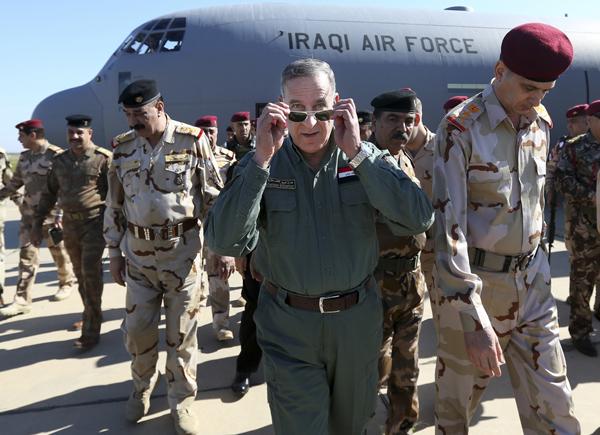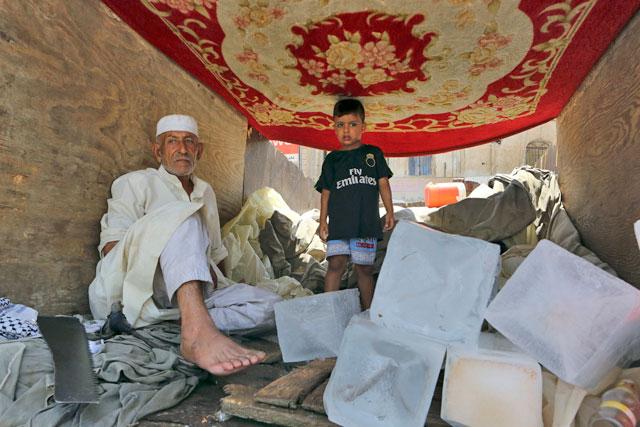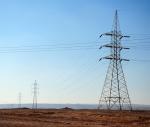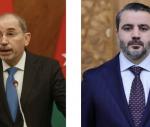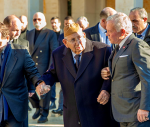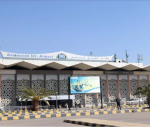You are here
Down another key minister, Iraq continues Mosul push
By AP - Aug 28,2016 - Last updated at Aug 28,2016
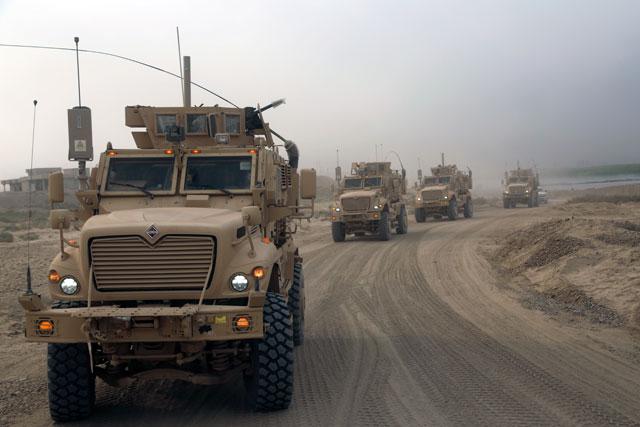
In this Saturday picture, Iraqi security forces deploy after the defeat of the Daesh terror group in Qayyarah, 70 kilometres south of Mosul, Iraq (AP photo)
BAGHDAD — Iraq's security forces continue to gear up for a long-awaited operation to retake the Daesh-held city of Mosul. But they will be doing so without the minister of defence who has presided over most of the military's recent successes against the extremist group.
Khaled Al Obeidi was abruptly dismissed by a parliamentary no-confidence vote Thursday after weeks of political wrangling over duelling allegations of corruption with the Parliament Speaker Salim Al Jabouri.
The allegations of corruption were quickly exploited by a handful of Iraq's powerful political blocs looking to weaken Iraqi Prime Minister Haider Al Abadi by removing one of his key Sunni allies.
Neither Jabouri's nor Obeidi's allegations of corruption have been publicly proven.
Obeidi's removal came just over a month after the minister of interior's resignation was accepted, leaving Iraq without two key security officials as the country prepares for what is expected to be the most complicated fight yet in the anti-Daesh campaign.
Interior Minister Mohammed Al Ghabban submitted his resignation in early July amid mounting anger following a massive truck bombing claimed by Daesh in central Baghdad that killed more than 300 people.
So far Abadi has kept largely quiet on Obeidi’s dismissal. His office told The Associated Press that it will not affect ongoing military campaigns.
On the ground, operations in advance of an assault on Mosul have continued uninterrupted by the political shake up, according to ministry of defence spokesman Brig. Gen. Yahya Rasool and a senior ministry of defence official. Rasool said logistics, command and control are not reliant on the defense minister, but rather controlled by the Joint Special Operations command.
“The sacking the defence minister is a political issue and not a military one,” he said.
Just moments before the no-confidence vote Thursday, Abadi announced that a town south of Mosul neighbouring a key air base had been “liberated”, by Iraqi ground forces backed by coalition air strikes. Abadi said the retaking of Qaraya marked an “important step” on the road to Mosul. While progress south of Mosul has been slow, Iraqi forces have not suffered any significant territorial setbacks in recent months.
Late Saturday night, Abadi announced another victory against Daesh. In a statement he said Iraqi forces had completely retaken the Khaldiya area in Anbar province between Ramadi and Fallujah, a pocket of desert territory used by the militant group to move supplies, weapons and fighters through Anbar.
Obeidi’s dismissal also concentrates on a significant amount of power in the hands of the prime minister. Abadi’s predecessor Nouri Al Maliki left the defence and interior portfolios vacant and ran those ministries himself.
“Abadi came in [to office] promising not to do what Maliki had done ... but he’s ended up doing just that,” said Nathaniel Rabkin, managing editor of Inside Iraqi Politics, a political risk newsletter. Rabkin explained that the move does not appear to be an intentional power grab by Abadi like that of Maliki.
A senior official in the ministry of defence maintained that Obeidi’s departure would have no effect on the day-to-day workings of the ministry. “The minister is a formality and has no real impact on operations,” he said. The official spoke on condition of anonymity, as he was not authorised to brief the press.
Obeidi, a Mosul native, was the most senior Sunni official in Abadi’s defense establishment. His original appointment in October of 2014 was praised by members of the then newly formed US-led anti-Daesh coalition as a move towards creating a more inclusive government that would address Sunni marginalisation and some of the rampant corruption issues that allowed Daesh to embarrass the Iraqi military in 2014.
The defence minister’s dismissal “gives clear evidence that the subject of reconciliation has received a mercy killing”, said Zuhair Al Jabouri, a senior member of the provincial council in Nineveh province, which contains Mosul. “There can no longer be national reconciliation,” he said.
On the newly formed frontline some 60 kilometres south of Mosul, Rasool, the defence ministry spokesman said: “The fighters and officers are frustrated that the defence minister was sacked in this way”.
“Despite the frustration we will continue to fight and expel Daesh,” he added.
Related Articles
Iraq's Sunni province of Anbar is key to launching the long-awaited operation to retake the city of Mosul from Daesh terror group, the country's defence minister said Wednesday.
BAGHDAD — Iraqi lawmakers on Thursday voted to impeach Defence Minister Khaled Al Obeidi over corruption allegations, MPs said.Obeidi lost a
BAGHDAD — Iraqi Prime Minister Haider Al Abadi has imposed a travel ban on several parliamentary officials accused of corruption, his office


